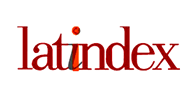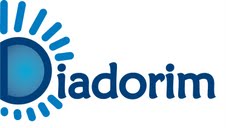Conflict management in Medicine teaching relationships: an integrative review about aspects, profiles, and teaching techniques
Conflict management in Medicine teaching relationships
DOI:
https://doi.org/10.13037/ras.vol22.e20249626Keywords:
negociação, educação médica, docentes, estudantesAbstract
Conflict is present in health professionals’ daily basis and spreads to Medicine teaching relationships. So, there is a growing need for conflict management training for professionals and students. Despite that, there is still a small content about the teaching of these skills in the medical field, what makes an integrative/systematic literature review necessary. Objectives: Make an integrative literature review on several databases about the implementation of conflict management teaching in the medical field, targeting the national and international literature of the last 10 years. Materials and Methods: A database search was performed using the bases Scielo, Scopus, PubMed and Virtual Health Library with the terms “negotiating” and “medicine”, between 2012 and 2022, applying the inclusion and exclusion criteria. Results: During the initial search, 18.273 articles were found but only 10 of then were selected to integrate this review, creating 3 thematic categories that were discussed separately: Conflict resolution profiles and knowledge of the theme, conflicts’ etiology and teaching models. Conclusions: It is evident the need of its teaching interventions focused in all levels (students, residents and staffs) with a diverse range of teaching techniques and sessions’ structure depending on the public, with the aim to qualify educational and professional spaces. Furthermore, the interventions must pay attention to the prevalence of each conflict resolution profile and the main conflict etiologies.
Downloads
References
Greer LL, Saygi O, Aaldering H, De Dreu CKW. Conflict in medical teams: Opportunity or danger? Med Educ. 2012;46(10):935-942. doi:10.1111/j.1365-2923.2012.04321.x
Bond MMK, Oliveira MS de, Bressan BJ, Bond MMK, Silva ALFA da, Merlo ÁRC. Prevalência de Burnout entre Médicos Residentes de um Hospital Universitário. Rev Bras Educ Med. 2018;42(3):97-107. doi:10.1590/1981-52712015v42n3rb20170034.r3
Wolfe AD, Hoang KB, Denniston SF. Teaching Conflict Resolution in Medicine: Lessons From Business, Diplomacy, and Theatre. MedEdPORTAL J Teach Learn Resour. 2018;14:10672. doi:10.15766/mep_2374-8265.10672
Souza MT, Silva MD, Carvalho R. Revisão integrativa: o que é e como fazer. Einstein (São Paulo). 2010; 8 (1): 102-6. Published online 2010.
Vasilopoulos T, Giordano CR, Hagan JD, Fahy BG. Understanding Conflict Management Styles in Anesthesiology Residents. Anesth Analg. 2018;127(4):1028-1034. doi:10.1213/ANE.0000000000003432
Isbouts LN, Muijtjens AMM, van Mook WNKA, Busari JO. Exploring medical residents’ perceived need for negotiation skills training. Int J Med Educ. 2019;10:45-53. doi:10.5116/ijme.5c6c.3430
Broukhim M, Yuen F, McDermott H, et al. Interprofessional conflict and conflict management in an educational setting. Med Teach. 2019;41(4):408-416. doi:10.1080/0142159X.2018.1480753
Vanstone M, Grierson L. Medical student strategies for actively negotiating hierarchy in the clinical environment. Med Educ. 2019;53(10):1013-1024. doi:10.1111/medu.13945
Gunasingha RMKD, Lee HJ, Zhao C, Clay A. Conflict resolution styles and skills and variation among medical students. BMC Med Educ. 2023;23(1):246. doi:10.1186/s12909-023-04228-x
Brewer N, Mitchell P, Weber N. Gender role, organizational status, and conflict management styles. Int J Confl Manag. 2002;13(1):78-94.
Green B, Oeppen RS, Smith DW, Brennan PA. Challenging hierarchy in healthcare teams–ways to flatten gradients to improve teamwork and patient care. Br J Oral Maxillofac Surg. 2017;55(5):449-453.
Schaller MD, Gatesman-Ammer A. Introducing conflict resolution and negotiation training into a biomedical sciences graduate curriculum. BMC Med Educ. 2022;22(1):419. doi:10.1186/s12909-022-03494-5 MH - Currículo MH - Negociação MH - Educação de Pós-Graduação MH - Humanos MH - Estudantes MH - Universidades
Houser MM, Worzella G, Burchsted S, Marquez C, Domack T, Acevedo Y. Wellness Skills for Medical Learners and Teachers: Perspective Taking and Cognitive Flexibility. MedEdPORTAL J Teach Learn Resour. 2018;14:10674. doi:10.15766/MEP_2374-8265.10674
Pang J, Navejar N, Sánchez JP. Mistreatment in Residency: Intervening With the REWIND Communication Tool. MedEdPORTAL J Teach Learn Resour. 2022;18:11245. doi:10.15766/mep_2374-8265.11245
Birnbach DJ, Rosen LF, Fitzpatrick M, Shekhter I, Arheart KL. Preparing Anesthesiology Residents for Operating Room Communication Challenges: A New Approach for Conflict Resolution Training. Anesth Analg. 2021;133(6):1617-1623. doi:10.1213/ANE.0000000000005561
Barr KP, Reyes MR, Kim S. “Hot Seat” Simulation to Teach Conflict Management Skills to Residents. J Gr Med Educ. 2020;12(4):485-488. doi:10.4300/JGME-D-19-00594.1
Simpson MA. How to Use Role-Play in Medical Teaching. Med Teach. 1985;7(1). doi:https://doi.org/10.3109/01421598509036794
Downloads
Published
Issue
Section
License
Copyright (c) 2024 Guilherme Cabral Borges Martins , Gustavo Antonio Raimondi

This work is licensed under a Creative Commons Attribution-NonCommercial-NoDerivatives 4.0 International License.
Policy Proposal for Journals offering Free Delayed Access
Authors who publish in this magazine agree to the following terms:
- Authors maintain the copyright and grant the journal the right to the first publication, with the work simultaneously licensed under a Creative Commons Attribution License after publication, allowing the sharing of the work with recognition of the authorship of the work and initial publication in this journal.
- Authors are authorized to assume additional contracts separately, for non-exclusive distribution of the version of the work published in this magazine (eg, publishing in institutional repository or as a book chapter), with the acknowledgment of the authorship and initial publication in this journal.
- Authors are allowed and encouraged to publish and distribute their work online (eg in institutional repositories or on their personal page) at any point before or during the editorial process, as this can generate productive changes, as well as increase impact and citation of the published work (See The Effect of Open Access).









